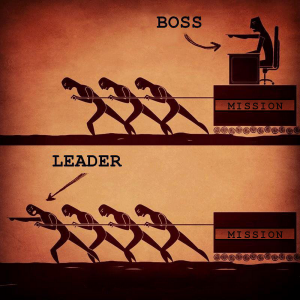As you can imagine, owning or starting a business is hard, especially if it’s your first time. In those oh-so-important early years of the business, the business owner wears so many hats. You literally have to know the equivalent of ten jobs just to stay afloat. It’s exhausting yet exciting. Every day is a new day and you have to prioritize which three of the ten hats your can find time to wear.
In the early years of building my web design company Lidyr Creative, we just lived day by day learning the skills that we needed as we went along. Now that we are going on our third year, I can honestly look back and say that over time I became proficient in some pretty awesome areas without realizing it.
Recommended: Betterthansuccess.com/calculateit
We just studied and practiced habits that got us through the day. Now that I can see an aerial view of the entrepreneurship land, we can plan and strategize what skills and disciplines we need to know for a more long term plan to navigate business ownership. Here is an in-depth list of the top skills you will absolutely need to succeed in entrepreneurship;
1) Fully Understand Your Actual Industry
The claim that every entrepreneur needs to be proficient in the ins and outs of his industry is a given. But you wouldn’t believe how many entrepreneurs or entrepreneur hopefuls that we encounter, who know very little about their industry! The more you know about your industry, the better you can navigate your business. You have to strive to become an expert on your industry. Study the big players, know their history, and know the history of the industry. Here are some places to get started learning about your industry
Read The “For Dummies” Book about Your Industry.
This is a must. It will help you wrap your mind around what you are up against
Get at Least Five Years of Experience Working in Your Industry
If you are starting a business in the industry in which you previously held a leadership position working for someone else, then by all means you, probably have a good idea about what you are doing. But be mindful that most companies divide departments and positions up so that people are proficient in single areas or even subareas of any industry. So, take an assessment of your responsibilities in your job and see if they are just a narrow focus of the industry or have you really been learning the industry as a whole? If it’s just a narrow focus, then you have some studying to do
Read, Listen and Watch
Google the phase “Top books about (your industry)”. Buy the 3 top books about your industry, read them, and then start watching lectures on YouTube by the authors of those books. Trust me, just do it.
Mind Your Business (from Rich Dad, Poor Dad)
Before I end this conversation about industry, I want you to also be mindful of what industry you are actually in. Read this excerpt from the book Rich Dad, Poor Dad to see what I mean:
“In 1974, Ray Kroc, the founder of McDonald’s, was asked to speak to the MBA class at the University of Texas at Austin. A friend of mine was a student in that MBA class. After a powerful and inspiring talk, the class adjourned and the students asked Ray if he would join them at their favorite hangout to have a few beers. Ray graciously accepted. “What business am I in?” Ray asked, once the group had all their beers in hand. “Everyone laughed,” my friend said. “Most of the MBA students thought Ray was just fooling around.” No one answered, so Ray asked again, “What business do you think I’m in?” The students laughed again, and finally one brave soul yelled out, “Ray, who in the world doesn’t know that you’re in the hamburger business?” Ray chuckled. “That’s what I thought you would say.” He paused and then quickly added, “Ladies and gentlemen, I’m not in the hamburger business. My business is real estate.” As my friend tells the story, Ray spent a good amount of time explaining his viewpoint. In his business plan, Ray knew that the primary business focus was to sell hamburger franchises, but what he never lost sight of was the location of each franchise. He knew that the land and its location were the most significant factors in the success of each franchise. Basically, the person who bought the franchise was also buying the real estate under the franchise for Ray Kroc’s organization.
So, let’s say for example, you have a business selling accessories online. You are in the:
A) Accessories industry.
B) Fashion industry.
C) Ecommerce industry.
D) All of the above.
If you answered “D” then you’re correct. So again, you have a lot of work to do.
2) Fully Understand the Industry in Which You Acquire Customers/Clients
What good is your business if you don’t know how to acquire customers? Understanding where your customers come from or how you will attract them is essential. Learn everything you can from your current customers about their buying habits whether you ask them directly or study them behind the scenes. You know I’m all about self-education and fortunately for you, humans like money so they have produced an endless amount of information about every channel in which we acquire customers. Read it and consume it!
3) Leadership Skills
 Lack of leadership skills is probably the biggest epidemic plaguing the business world. From small businesses to large businesses, people don’t know how to lead, nor do they understand what characteristics make up a good leader. I take pride in this being my strong suit. My company has put together an amazing team who works well together and that excites me. But at the same time its very humbling.
Lack of leadership skills is probably the biggest epidemic plaguing the business world. From small businesses to large businesses, people don’t know how to lead, nor do they understand what characteristics make up a good leader. I take pride in this being my strong suit. My company has put together an amazing team who works well together and that excites me. But at the same time its very humbling.
Here are some tips from my experience about leading a team.
Be a Person of Character and Purpose
Character and Purpose: These 2 things will attract the right people to your organization. People want to spend their time with people that they can trust. And equally as important, they also want their work to mean something. So your purpose is important, but it has to be genuine. People can pick up on insincerity, so if you don’t know your purpose yet, then be honest. Tell your team that you are working to build something to have an impact but you will figure it out along the way. Don’t just tell the team that you are looking to feed the poor when it’s not really in your heart. Don’t rush it, it will come to you.
ALWAYS Be on the Lookout for People’s Gifts and Encourage Them to Work within Their Gifts.
This is one of the most important skills a leader must have. Always consider your team’s individual gifts. This is where people flourish and they find joy. Sometimes we get so caught up in life and trying to make ends meet that we don’t focus on our gifts. And the reality is, you and your team members are no exceptions to this. But if we have someone to help us navigate back to our gifts, then that’s something that anyone would appreciate! A good leader has a sense of what’s next for both the team as a whole and the individual members.
4) Finance Skills
Finance is an extremely overlooked skill that every entrepreneur must have in order to succeed, especially the creatives. You have to be able to manage the company’s money. Otherwise, you will drown. Know where your money is going, know how to cut costs, know the source of your costs, know what you have, know what you will have. So many things to know, so little time.
Here are some finance concepts and definitions you need to familiarize yourself with to run a successful business. You can start at investopedia.com to learn about all of these terms.
- Have a good accounting/money tracking system that you reconcile weekly
- Understand Balance Sheet, Profit and Loss Statement, Income Statement
- Know your Break Even point
- Have a budget
- Keep good credit
- Understand the dollar cost of debt you take on
- Know the difference between good debt and bad debt
- Understand ‘Return on Equity’, ‘Net Margin’ and ‘Gross Margin’
If you spend the first two years studying these disciplines, I ensure you that you will become a better person, business person, and leader. Even if you think you know it all, always remember there is always another skill to learn to be a successful entrepreneur.







